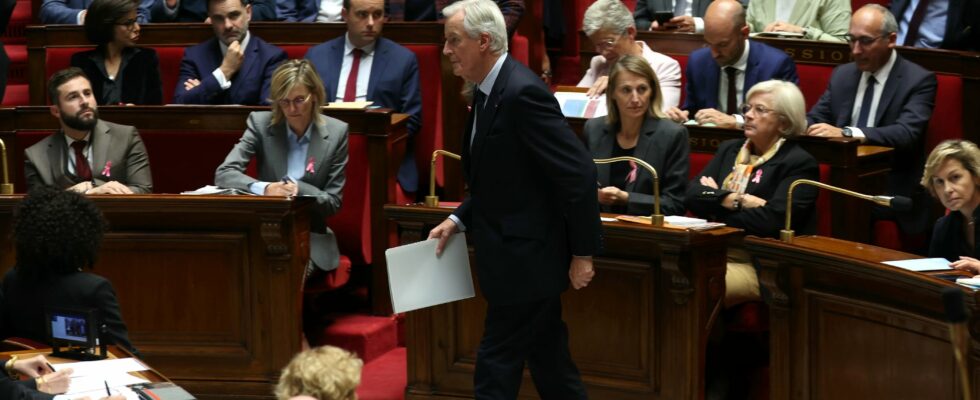All eyes will be on the National Assembly next week. From Monday October 21, and until Friday 25, deputies will debate state revenue in the hemicycle. This debate promises to be flammable. Prime Minister Michel Barnier has already warned, in an interview granted in the Sunday Journal (JDD) : MPs must not give in to the temptation of a “Lépine tax competition” when examining the 2025 budget, after a first week of lively debates in the Finance Committee.
On Saturday, the deputies who made it up rejected the “revenue” part of the budget, after having largely modified it compared to the government’s copy. Put through the mill, the bill presented last week had become unrecognizable: key articles deleted, amendments worth several billion euros adopted, new taxes or exemptions galore…
In all, nearly 200 amendments were adopted, considerably upsetting the financial balance of the text. These modifications were, however, all swept aside during the final vote: 29 deputies rejected it, while 22 approved it. If the left voted for the text, all the other groups – the RN and its allies, the presidential camp and the centrists of the Liot group – voted against due to an excessive increase in tax revenue compared to the initial text, Around 60 billion euros according to the president of the commission, Éric Coquerel (La France insoumise).
“With the adoption of the amendments of the New Popular Front (NFP) which did not even fit together, the text had become untenable,” lamented Michel Barnier at the JDD. “Tens of billions in additional taxes would weaken our businesses and the purchasing power of our fellow citizens. Citizens deserve seriousness and responsibility,” said the Prime Minister.
The shadow of 49.3
It is therefore on the basis of the initial text of the executive that the debate resumes in the hemicycle from this Monday. It should last for a week… Unless a motion of rejection is adopted, or the government draws out article 49.3 of the Constitution during the debates, while the solemn vote is scheduled for October 29. Given the number and scale of the modifications voted on in committee between Wednesday and Saturday, the question of a forced passage with 49.3 – which allows a text to be adopted without a vote – could indeed quickly arise, in order to avoid a new series of disappointments.
“We are betting on letting the discussion take place in the National Assembly,” said the Prime Minister. “Then, it will take place in the Senate. Naturally, I will be vigilant to ensure that the general balance of the budget is preserved. I do not want taxes to be increased beyond the temporary effort that we have asked of certain large businesses and the wealthiest taxpayers,” he underlined. The head of government, however, did not rule out a forceful adoption. “In the event of a parliamentary blockage, delaying the adoption of the budget could paralyze public action, compromise the management of state finances and endanger France’s financial credibility. 49.3 thus makes it possible to avoid a blockage” , he warned. But its use could expose its fragile coalition to a motion of censure.
According to Éric Coquerel, resorting to 49.3 is a logical outcome. MP Insoumis is convinced that the government “does not want to be in the minority on its budget and show a completely cracked majority”, he told AFP. In order to better push the executive to its limits and draw out a motion of censure, the president of the Finance Committee seems to rule out a motion of rejection which would “avoid debate”. Insoumise France had congratulated itself, in recent days, on “victories” over “superprofits” and multinationals, for dizzying amounts. “It is the demonstration that there was a majority” for this “NFP-compatible” budget, estimated the Insoumis.
The “common base” particularly scrutinized
The attitude of the relative majority will be closely monitored next week, while the “common base” supporting the government’s action has often shown itself to be divided in recent days. From the start, central bloc MPs were unable to prevent votes in favor of a permanent tax on high incomes, which the government only wanted to be “temporary”. Nor have they succeeded in curbing a tightening of measures on share buybacks, the research tax credit or against the maritime carrier CMA-CGM.
Furthermore, right and center have openly obstructed certain emblematic measures such as increases in electricity taxesgas boilers and thermal vehicles. The RN was concerned about this confusion. “I don’t see any coordination between the different parties who support Michel Barnier,” commented RN deputy Jean-Philippe Tanguy during the discussion, deploring not knowing “at all where this finance bill is going.”
